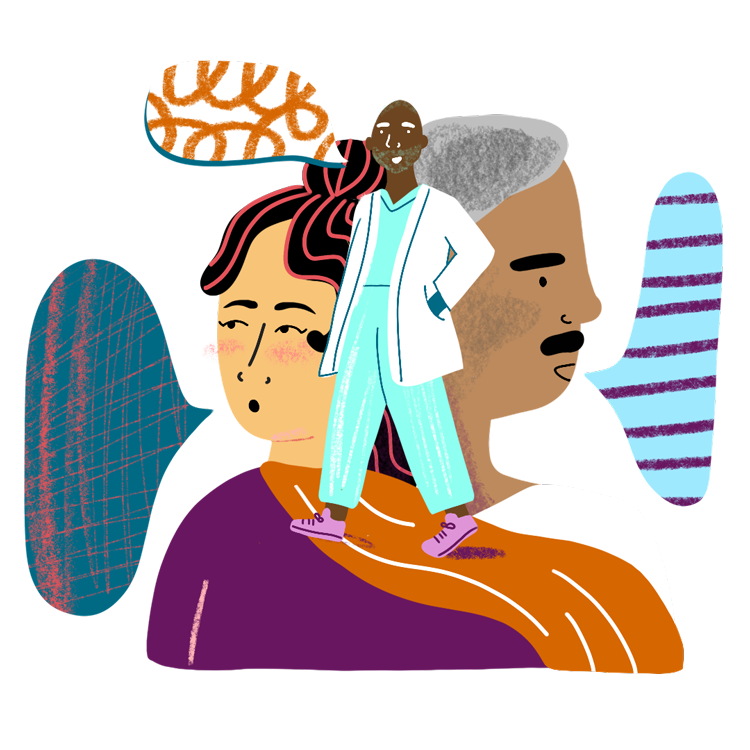Patients and investigators determining optimal methods for releasing test results


Patients and investigators determining optimal methods for releasing test results
As of April 2021, the 21st Century Cures Act (Cures Act) mandated near-immediate availability of all information in a patient’s record. This mandate has few exceptions, states patients should have access to their test results right away, and includes lab reports, and imaging and pathology narratives.
Open Results is a national research network interested in the views and preferences of patients. Through this collaboration, we hope to better understand how clinicians might offer education and anticipatory guidance about information that may be considered troublesome for some patients when viewed immediately through online patient portals.
As clinicians, researchers, social scientists, and patient advocates, Open Results believes patients hold unique insights into their own healthcare experiences. To us, better understanding patient views on the release of sensitive health information through portals is essential for advancing a truly patient-centered healthcare ecosystem.
US policy requires immediate release of records to patients , BMJ (2021)
Six practical tips on anticipatory guidance for when test results are immediately released to your patients, per the Cures Act , CAPC (2023)
So far, research suggests patients prefer immediate access to their test results, even if it means the results are released before the ordering health care professional has reviewed them. This is the case even when results are out of range or “non-normal”.
In a recent survey of 8,139 patients across four academic medical centers, patients—even those with “non-normal” results—overwhelmingly (96%) preferred to receive immediate results via the patient portal. It is important to note, however, that “increased worry” about the interpretation of test results was more common among those with “non-normal” test results (16.5% vs. 4.9%). (Note that the study applied to anyone who uses the patient portal, and not just those facing serious illness.)
Real-Time Electronic Patient Portal Use Among Emergency Department Patients , JAMA Open (2024)
Perspectives of Patients About Immediate Access to Test Results Through an Online Patient Portal , JAMA Open (2023)
Patient perceptions of receiving COVID-19 test results via an online patient portal: an open results survey , Appl Clin Inform. (2021)
In 2024 and beyond, Open Results is directing our research efforts toward better understanding patient perspectives around cancer test results.
Open Results plans to partner with patients and care partners in the co-design of these studies to ensure we are asking questions meaningful to diverse cancer patient communities.
We suspect patient preferences may vary widely based on a person’s history within the healthcare system and time from diagnosis.
When Bad News Comes Through the Portal: Strengthening Trust and Guiding Patients When They Receive Bad Results Before Their Clinicians , ASCO Ed Book (2024)
Open Notes in Oncology: Patient versus Oncology Clinician Views , Cancer Cell (2020)
Cait DesRoches, DrPH
Executive Director, OpenNotes, Associate Professor of Medicine, Harvard Medical School
Anna Garcia, MD
Senior Project Manager, OpenNotes
Isabel Hurwitz
Research Assistant, OpenNotes
Amanda Norris, MDiv, MTS
Project Strategist, OpenNotes
Liz Salmi
Communications & Patient Initiatives Director, OpenNotes
Fabienne Bourgeois, MD
Associate CMIO
Scott MacDonald, MD
CMIO
CT Lin, MD
CMIO, Professor of Medicine, University of Colorado School of Medicine
Robin T. Higashi, PhD
Assistant Professor, Peter O’Donnell Jr. School of Public Health
Robert Turer, MD
Assistant Professor of Emergency Medicine
Bryan Steitz, PhD
Research Fellow
S. Trent Rosenbloom, MD, MPH
Director, My Health at Vanderbilt
![]() Except where otherwise noted, the content by OpenNotes is licensed under a Creative Commons Attribution 4.0 International License.
Except where otherwise noted, the content by OpenNotes is licensed under a Creative Commons Attribution 4.0 International License.
NEW WEBINAR
Getting It Write: What To Do Now That Patients in England Can Read Their GP Notes
Tuesday, November 1, 2022 | 8am Pacific Standard Time (PST)
11am Eastern Standard Time (EST) / 3pm Greenwich Mean Time (GMT)
While open notes have been the “law of the land” in the United States for more than a year, in England, adult patients accessing care through the National Health Service (NHS) will have access to their primary care record online for the first time starting Nov. 1, 2022.
In this webinar, we’ll be joined by open notes experts and discuss what this change means for patients and general practitioner (GP) staff in England.


